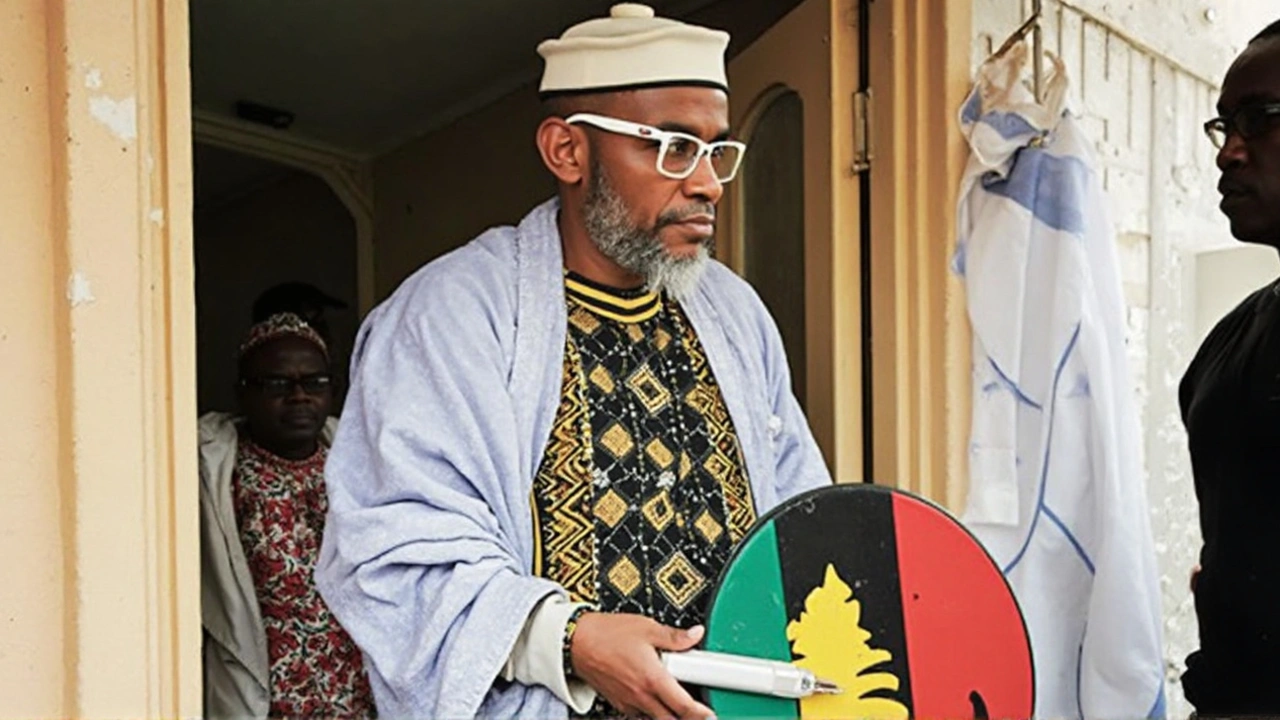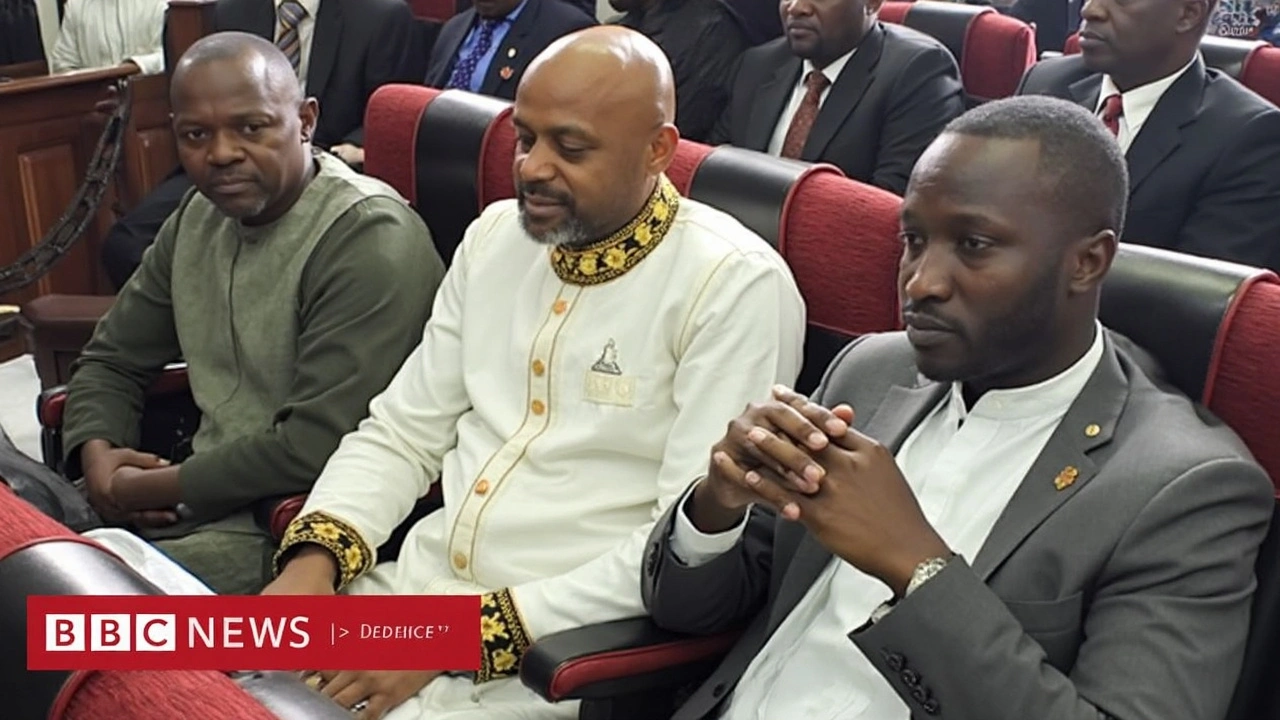High Court Drama: Video of Kanu's Threats Rocks Abuja Courtroom
The Federal High Court in Abuja turned into a scene straight out of a political thriller this week when judges admitted video evidence that could redefine the legal battle around Nnamdi Kanu, leader of the Indigenous People of Biafra (IPOB). The footage didn’t just capture words—it brought Kanu’s most controversial allegations into the sterile, unforgiving air of the courtroom.
One of the most striking moments was seeing Kanu unapologetically refer to Nigeria as a "zoo," targeting high-profile Igbo figures who have shaped the country's history. He called out Ike Nwanchukwu, a former Minister of Foreign Affairs, and accused him of direct involvement in the deaths of fellow Igbos—a charge that rippled with emotional intensity through spectators and prosecutors alike.
Kanu didn't stop there. The video featured a tirade against Jim Nwobodo, the ex-governor of Anambra State, whom he condemned as a traitor for his alleged betrayal of former presidential hopeful Alex Ekweme. Then things got even more incendiary: Kanu alleged that Peter Obi, the 2023 presidential candidate with deep roots in the southeast, had orchestrated the dumping of Igbo corpses in a river—a claim guaranteed to stoke public anger and fear.
Three separate videos formed the core of the prosecution’s arsenal. Alongside Kanu’s broadcast on Radio Biafra, the evidence included an interview he granted to Sahara Reporters. Testimony from the prosecution’s third witness (PW3) pushed the court to accept the content as direct proof of terrorism-related charges. According to PW3, these weren’t just rants—they were explicit threats mapped out against named Igbo leaders.
The drama extended beyond Kanu himself. The mood in the courtroom soured after his sister-in-law was caught livestreaming the trial, rallying supporters on social media and inviting commentary in real time. The presiding judge showed no tolerance for such disruptions, banning her from future hearings for contempt—a rare but pointed move that sent a clear message about courtroom decorum. This decision was a warning shot to supporters eager to use technology to shape the narrative before the case’s conclusion.

Kanu, IPOB, and the Deepening Southeast Rift
This case has always been about more than the fate of one man. Nnamdi Kanu’s trial is inseparable from Nigeria’s wider struggles with separatist tensions and the fraught question of representation for the Igbo people. Kanu, who refers to himself as the voice of a new Biafran movement, has repeatedly claimed that mainstream Igbo politicians have betrayed their people—the very message that prosecutors now argue has incited unrest in the southeast.
It’s not just politicians in the crosshairs. Ordinary people across the region are glued to every update from the courtroom—some hoping for vindication, others fearing a backlash. The explosive video clips played in court are now part of the official record, raising the stakes for the legal process and the wider public debate.
For now, the court’s willingness to admit these videos—unfiltered, raw, and direct—marks a pivotal moment in Kanu’s journey from activist to symbol, and possibly to convicted criminal. How the jury responds to these incendiary words—and the allegations made against figures like Peter Obi—could shape not just Kanu’s future, but that of IPOB and the southeast for years to come.


george hernandez
The court’s decision to admit the raw footage marks a watershed moment in Nigerian jurisprudence.
By allowing unfiltered video, the judges have signaled that evidentiary standards can adapt to modern media.
This move opens the door for prosecutors to lean heavily on visual proof rather than solely on witness testimony.
It also forces defense attorneys to confront the power of public perception shaped by viral clips.
In a nation where political narratives are often contested, such visual evidence can sway both jurors and the populace.
Kanu’s threatening language, when replayed in a solemn courtroom, acquires a gravitas that raw internet streams lack.
The allegations against prominent Igbo leaders become more than rhetoric; they transform into potential incitements under the law.
Observers note that the video’s admission could set a precedent for future separatist trials across the continent.
Critics argue that the court risks conflating free speech with criminal intent by treating the footage as direct proof.
Supporters counter that the video clearly crosses the line into hate speech and terror encouragement.
Regardless of the side one stands on, the legal community will dissect this ruling for months to come.
The decision also raises questions about the admissibility of livestream content captured by third parties.
If the judiciary embraces such evidence, it may compel activists to alter their communication strategies.
Ultimately, the outcome of Kanu’s case will hinge on how the judges interpret the intent behind his words.
Whatever the verdict, the courtroom drama will echo far beyond Abuja, influencing the broader discourse on separatism and national unity.